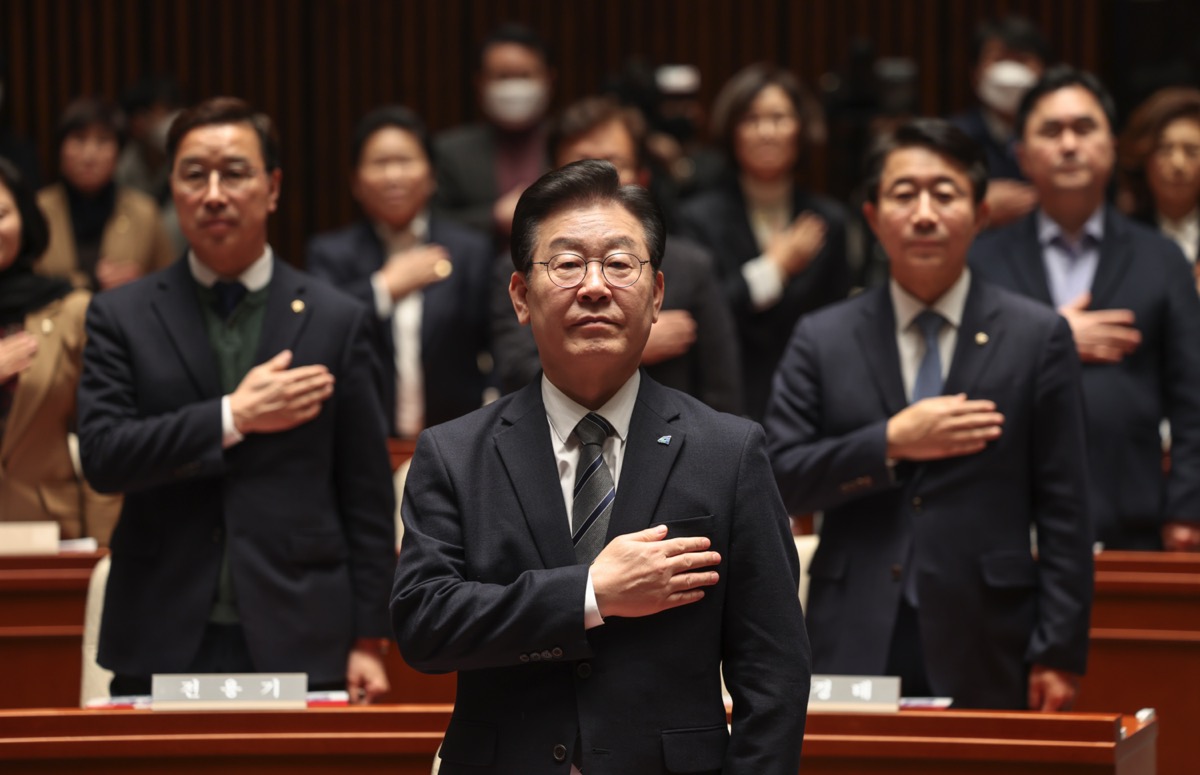The gangster who sent $8m in cash to North Korea
To all the gangsters who want to become proper businessmen one day, Kim Seong-tae김성태 might be seen as a role model. Allegedly having started off his career as a petty gangster in Jeonju전주, Kim made himself a chairman of a conglomerate, which had been listed as one of the top 100 conglomerates in Korea during the 90s, at last.
He was a man of ambition. Earning the title of chairman of an archaic undergarment company group that has been long past its prime can never be enough for him. Kim wanted to up his game further. Eventually, he did, maybe too far.
It involved sending cash to North Korea.
The latest and probably the weirdest episode from Lee Jae-myung’s mahabharata of scandals, narrated by the bards in the prosecutors’ office, tells us that Kim’s SBW Group sent more than eight million dollars in cash to Pyongyang in a bid to, in part, make Lee’s visit to the North come true.
Indeed, Kim is no stranger to defying law and order, but sending cash to North Korea without approval is a whole other game than illegal gambling and usury, for which he was convicted several times. What did make Lee so dear to him?
It’s closely related to how Kim made profit running companies: leveraged buyouts plus market manipulation. Convertible bonds are the secret sauce here. After taking over a company, Kim and his partners buy up its convertible bonds. Just before the bonds are due, they spread rumors that could put its stock on steroids. As the bonds can be converted into stocks after the due date, Kim and co could easily reap the profit.
Kim was able to enjoy some profit by employing politicians as outside board members (then spreading the word about it), but as it turns out North Korea was the ultimate steroid.
In 2019, an affiliate company of SBW Group signed a letter of agreement with an NK front group, which allegedly guarantees its business rights over the North Korean rare-earth mineral. After the news broke out, it is estimated that the company’s convertible bonds generated more than 170 million dollars in profit.
It’s hard to see how feasible the business seemed from where we are now (and probably Kim wouldn’t have bothered as the breaking of the news was enough for him), but everything seemed possible in the fever of 2018: Moon Jae-in met Kim Jong Un three times that year alone.
It also made Lee so desperate for some optics with the North, it seems. In the third and the last inter-Korean summit in 2018, Moon brought a delegation including businessmen and politicians. While the Seoul mayor and Gangwon governor were included, Lee the Gyeonggi governor was left out. (Pro tip: Moon hated Lee and he still does.)
Lee wanted to pave his way up to the North on his own. His bid to get the Gyeonggi-do government to invest in a smart farm project in North Korea got torpedoed at the provincial assembly, concerned about breaching international sanctions. Reports say Kim told the prosecutors that SBW Group paid for the investment instead.
While still one of the episodes from Lee’s saga, this story is especially symptomatic for several reasons:
- Lee was really an unfit character for public office. Yes, the court decision would be years away, but given the minute details of the story, it seems true that Lee and Kim have connections. Normally, someone with presidential ambitions would rarely allow oneself to mingle with the likes of Kim in any way.
- Lax regulations and the lack of scrutiny have made the South Korean financial market a hotbed for fraud and corruption. In the old days, gangsters often found their place in the construction sector, but Kim showed that there’s a way that is much easier to manipulate and more profitable.
- Much of these illicit profits appear to have flown into politics as kickbacks. How much of the profit Kim made from his North Korea show, estimated to be more than 170 million dollars, would have flown into politics? It’s quite possible that there’s more than Lee. (For instance, Lee Hae-chan’s office was issued a search warrant last October.) Which may well be the reason why a major overhaul of the system is still beyond the horizon.
- Minjoo Party has been more susceptible to this kind of corruption. This may be a mere coincidence, but I venture to suggest that this has something to do with its political support base. Whereas PPP and its former incarnations often found themselves mired in scandals with land developers and construction businessmen, too many Minjoo politicians were seen rubbing shoulders with financial fraudsters. Remember Optimus and Lime Asset Management? Moon administration even shut down the financial crime investigation task force.
We will be watching other scandals unfolding in the next five years unless a major overhaul of the market takes place.
